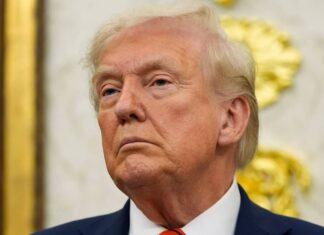The Nigerian Maritime Administration and Safety Agency (NIMASA) is yet to apply sanctions on erring ship owners still trading with single hull vessels five months after the December 2020 deadline.
Recall that in April 2001, the International Maritime Organisation (IMO) approved a global timetable to phase out all single hull crude tankers within 15 years, starting from September 2002.
According to a New Telegraph report, 19 years after, ship owners in Nigeria are still trading with single hull vessels as the Nigerian Maritime Administration and Safety Agency (NIMASA), the apex maritime regulator, has failed to take a decisive step to enforce compliance.
For instance, in August 2020, Director-General of the Agency, Dr Bashir Jamoh, set December 31 as deadline for the phasing out of single hull tankers operating in the country’s coastal waters.
Specifically, Jamoh said that NIMASA would stick to its decision, saying that the Agency had also submitted proposal to the Minister of Transportation, Rotimi Amaechi, to seek fiscal and monetary incentives for Nigerian ship owners.
The Director-General said operators still using this type of tanker should make adequate preparations to comply because there would be no going back on the pronouncement. However, findings revealed that the Agency had not commenced implementation of its directive, five months after the deadline.
It would be recalled that in 2015, the Agency revised its timetable to phase out single hull by five years, following the decision of IMO to extend the deadline for certain categories of single hull tankers not engaged in international trade.
Additionally, NIMASA secured the approval for the disbursement of the Cabotage Vessel Financing Fund (CVFF) to enable ship owners buy double hull vessels.
On the other hand, the indigenous ship owners said that the problem was not the acquisition of double hull vessels, but the patronage of such vessels by the Nigerian National Petroleum Corporation (NNPC), which would have made investments in the asset worth the changeover.
For instance, the President of Ship Owners Association of Nigeria (SOAN), Dr. Oyioung Mcgeorge, said that the group would wait for NIMASA to publish the marine notice with regard to the development.
He also explained that there had been enough notice by IMO to phase out the single hull vessels, saying that anybody, who does not comply to the changes in the shipping industry, would be left behind.
Mcgeorge noted that the vessels used by NNPC were double hull category, even when most of them do not belong to members of SOAN.
He said: “The issue we are facing is that we do not have enough ships to start with.
We need more ships and any ship that you buy now must be double and the double hull vessels really have impact in the local shipping industry because there are not many of them.
“Most charterers of vessels today demand double hull and most double hull vessels are less than 20 years.
“Historically, the double hull vessel issue started in year 2000. That is exactly twenty years ago and Nigeria is just implementing it.
“It is not a NIMASA issue, it is an IMO requirement and NIMASA has given long enough notice to operators and ship owners.”
Worried by the high risks caused by single hull vessels, the President of Nigerian Association of Master Mariners (NAMM), Capt Tajudeen Alao, urged the apex regulatory agency to start applying sanctions on ship owners still trading with the type of the vessel.











